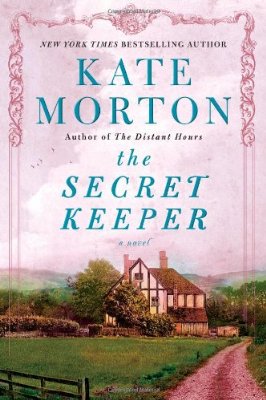The Secret Keeper by Kate Morton
By Lee Peoples | November 20th, 2012 | Category: Book Reviews, Fiction | Comments Off on The Secret Keeper by Kate Morton At sixteen in rural England at the start of the 1960s, Laurel Nicolson hides in their tree house to avoid the family outing in celebration of her baby brother’s second birthday. From there she witnesses a horrible act that involves her mother. Innocently, she attests to the fact that her mother’s response was to protect her two-year-old child and herself.
At sixteen in rural England at the start of the 1960s, Laurel Nicolson hides in their tree house to avoid the family outing in celebration of her baby brother’s second birthday. From there she witnesses a horrible act that involves her mother. Innocently, she attests to the fact that her mother’s response was to protect her two-year-old child and herself.
Years later in 2011, Laurel, an acclaimed actress now in her sixties, visits her ninety-year-old mother in the hospital in Suffolk, England, where Laurel and her four younger siblings—three sisters (Rose, Iris, and Daphne) and the youngest, a brother (Gerald)—have gathered because of the impending death of their mother, Dorothy (Dolly) Smitham Nicolson.
Laurel, who has never forgotten the scene she witnessed as a teenager, is reminded of questions she has had from the beginning about the encounter when her mother appears to ramble about the incident and when she accidentally finds a picture of her mother and a girlfriend about whom her mother has never spoken. She also learns from her baby brother Gerald, now in his fifties, that he, too, all his life has been bothered by the incident. Laurel finds it difficult to believe that he, then two years old, could remember let alone be aware of the incident. Having never shared her questions with anyone, she decides to be honest with Gerald, and the two of them together go in search of answers for themselves and for their mother who seems now to be haunted by the past.
The Secret Keeper is historical fiction at its best, and Kate Morton never fails to deliver. The story spans decades, beginning during World War II and ending in 2011. Through the use of an omniscient narrator, the novel is divided into four parts, each of which features one of the main characters: Laurel, Dolly, Vivien, and Dorothy. It is a love story. It is a story of regret and penance. It is a story which validates the axiom “the truth shall set you free.” The agony and the ecstasy of the plot and setting—both time and place—will thrill and delight you right up to the very end.








